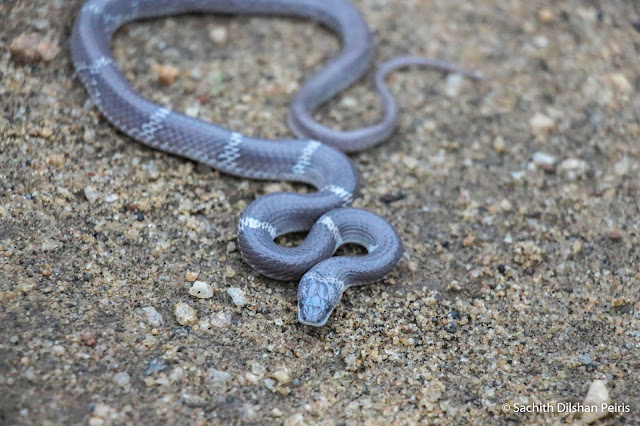Snakes
 |
Indian cobra/ Spectacled cobra (Naja naja) |
Which animal do you fear the most? Snake is the most common
answer for that. Fear for these amazing slithering unique reptiles has a long
history because people believe that,
- All snakes are highly venomous and always seeking to bite humans.
- Snakes are very dirty animals; their skins are slimy or sticky which are disgusting.
 |
Wolf Snake (Lycodon aulicus) |
If you ever touched a snake, you will understand the above
conclusions are not 100% true. Because
- The majority of snakes are non-venomous. They do not seek to bite and kill humans. They only attack If they feel threatened or to catch prey.
- Believe me, snakes are not slimy or sticky. They have very clean and dry skins.
People kill snakes because they think snakes are a threat to
us. Snakes are playing a major role in maintaining ecological balance. Wait
what? Yes. They are a significant part of our ecosystem as predators. Snakes
are carnivores. They control the population size of many pests such as rodents.
snakes are also good indicators of environmental pollution.
 |
Green Pit Viper (Trimeresurus trigonocephalus) |
Some snakes are venomous. Snake venom is composed of a
combination of proteins, enzymes, and other molecular substances. These
proteins can be extracted for medicinal purposes. Purposes of venom are
immobilizing and digesting prey as well as self-defense. Which is not developed
specifically to kill people. Snakes are predators, but also they can be prey
for other snakes from other species or the same species. But I mention again,
not all snakes are venomous.
 |
Saw-scaled Viper (Echis carinatus) |
Snakes have razor sharped and teeth pointed into the mouth.
But they do not chew, they swallow the prey. These teeth are used to prevent
prey from escaping. Only venomous species have fangs, which are specialized,
tube-like teeth. Used to inject venom into a wound once strikes. Snakes have
been grouped into four categories depending on their ability to kill their prey
by venom and the composition of the venom they possess. Which are,
- Deadly venomous
- Moderately venomous
- Mildly venomous
- Non-venomous
Another interesting fact about snakes is moulting. Scientists
call this process ecdysis, although you may also sometimes hear the terms
sloughing and molting. Unlike us, snakes
can shed their old skin completely for further growth and remove parasites
attached to the skin.


Comments
Post a Comment